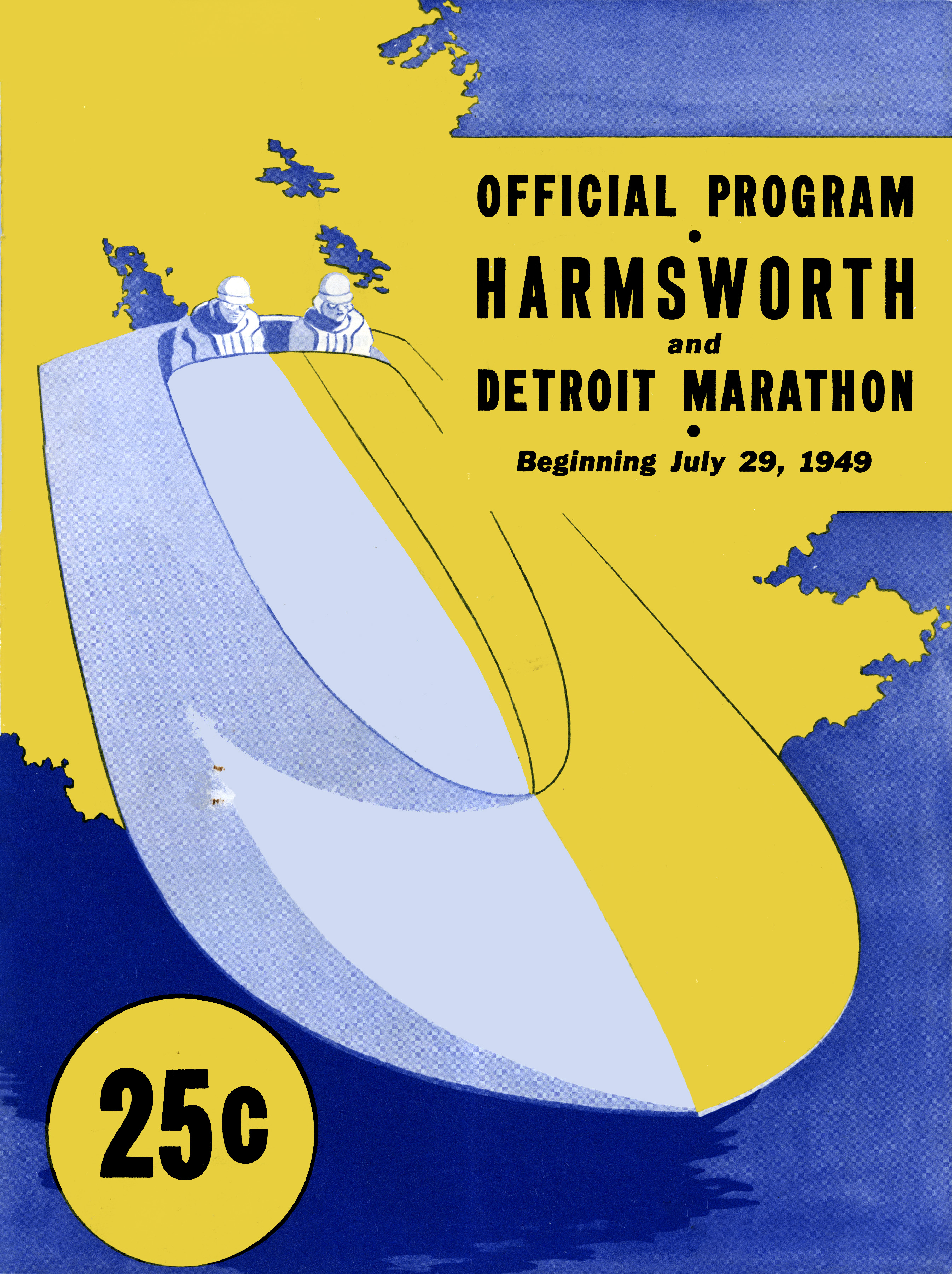1949 Harmsworth Trophy
Harmsworth Bid Raises Problem

Programme Guide
Boat Owners Face Costly Job of Props Reversal for the Race, Run Clockwise
Safer Year Is Predicted
Ban on Untried Entries in Major Contests Planned by Powerboat Body
By Guy Lombardo, Former Gold Cup Champion
Nineteen Forty-nine will be a faster, but safer year in power-boating. The big event, of course, Will be the International (Harmsworth) Trophy Race in Detroit in July. Already boat-owners have begun mulling over several "jokers" in the unique set-up of the Harmsworth race.
The biggest problem arises from the fact that the Harmsworth is run clockwise instead of counterclockwise. Turns are to the right. Our present boats are designed to turn left; they could not turn well to the right unless the rotations of the props were reversed—a big and costly job.
Owners of boats now afloat will simply have to decide on whether to go ahead and reverse props and try for the Harmsworth, or whether to let the props alone and go after the Gold Cup, President's Cup, Silver Cup, etc.
The only American automatically entitled to enter the Harmsworth is Gar Wood, by virtue of the fact he was the last winner of the trophy in 1933.
As for myself I have accepted the invitation of Henry J. Kaiser to pilot the new 32-foot boat, with 2700 h.p., which he is building. The boat will have two counter-rotating props and will be able to turn equally well to the left and right—or at least, that's how it shapes up on paper.
Of great significance will be the rule changes certain to be made during the current meetings of the American Powerboat Association's Committee on Rules, of which I am a member.
What we must have is a strictly enforced rule whereby boats and drivers would have to prove their worthiness before being allowed to enter the traditionally big races. Permitting an untried boat or driver in the Gold Cup or President's Cup race is akin to permitting a previously untested horse or jockey in the Kentucky Derby. Last year half the boats entered in the Gold Cup race had never before competed in any official
(Reprinted from the New York Times, January 9, 1949)
